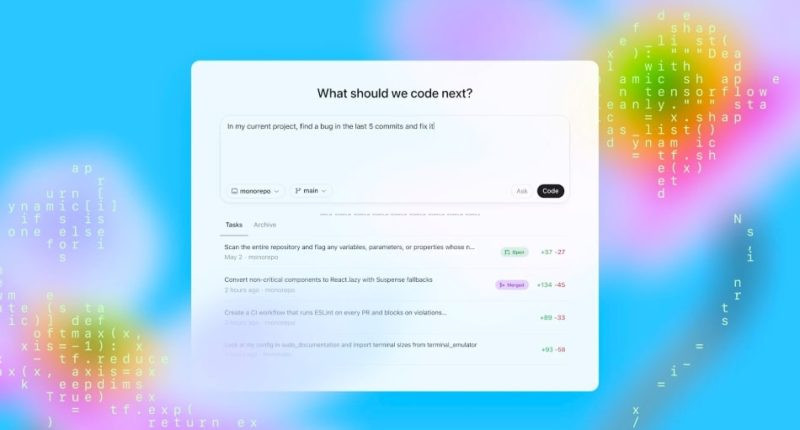OpenAI has unveiled Codex, an advanced AI coding agent integrated into ChatGPT. This release, currently in a research preview phase, is accessible to ChatGPT Pro, Team, and Enterprise users. Codex is based on the codex-1 model, derived from OpenAI’s o3 reasoning model (which has reportedly not met performance claims).
According to the company, Codex is designed to function as a virtual collaborator for developers, capable of autonomously generating code from natural language prompts, identifying and fixing bugs, running tests, and providing suggestions for real-world implementation improvements. It operates independently in the cloud, delivering results within 30 minutes, and is optimized for software engineering tasks. It is not allowed to connect to the internet on purpose, so it stays secure and private.
Currently, this newly introduced AI agent is still learning and can only do certain things, but the ChatGPT maker is already using it to help with their own projects. Meanwhile, the company is actively seeking user feedback during this research phase to refine its capabilities and ensure responsible use.
“Today you can access Codex through the sidebar in ChatGPT and assign it new coding tasks by typing a prompt and clicking “Code”. If you want to ask Codex a question about your codebase, click “Ask”. Each task is processed independently in a separate, isolated environment preloaded with your codebase,” the company said in a blog post.
In addition to Codex, the AI trendsetter has also presented Codex CLI, an open-source AI coding assistant that developers can run directly on their machines. This tool integrates OpenAI’s models with local code and computing tasks, allowing for code generation, refactoring, testing, and even deployment steps by combining multiple tools in an automated workflow. Interestingly, this move also represents OpenAI’s return to open-source development.
Earlier this week, the AI firm also rolled out its latest GPT-4.1 models for ChatGPT users despite concerns over transparency. These concerns originate from limited disclosure about the model’s training data and decision-making processes. Some researchers expressed concern that OpenAI’s lack of transparency could indicate a loosening of its safety standards.
The latest launch happens while OpenAI is reportedly in talks to acquire Windsurf (an AI-powered programming tool) for roughly $3 billion. But Microsoft-backed OpenAI is not alone in terms of advancing AI coding agents, other companies are also making significant developments as well. For example, Anthropic, with its Claude 3 model family (especially Claude 3 Opus), has demonstrated strong capabilities in code synthesis, multi-step reasoning, and understanding complex codebases. Additionally, Meta has also developed Code Llama, a specialized version of its LLaMA language model fine-tuned for programming tasks across multiple languages like Python, C++, Java, and Bash.
In parallel to all this, the company is reportedly in discussions with Microsoft to renegotiate the terms of its existing partnership as part of its transition to a for-profit model. According to recent reports, the restructuring plan includes a move to reduce Microsoft’s share of OpenAI’s revenue by half over the next 5 years.
The Tech Portal is published by Blue Box Media Private Limited. Our investors have no influence over our reporting. Read our full Ownership and Funding Disclosure →






